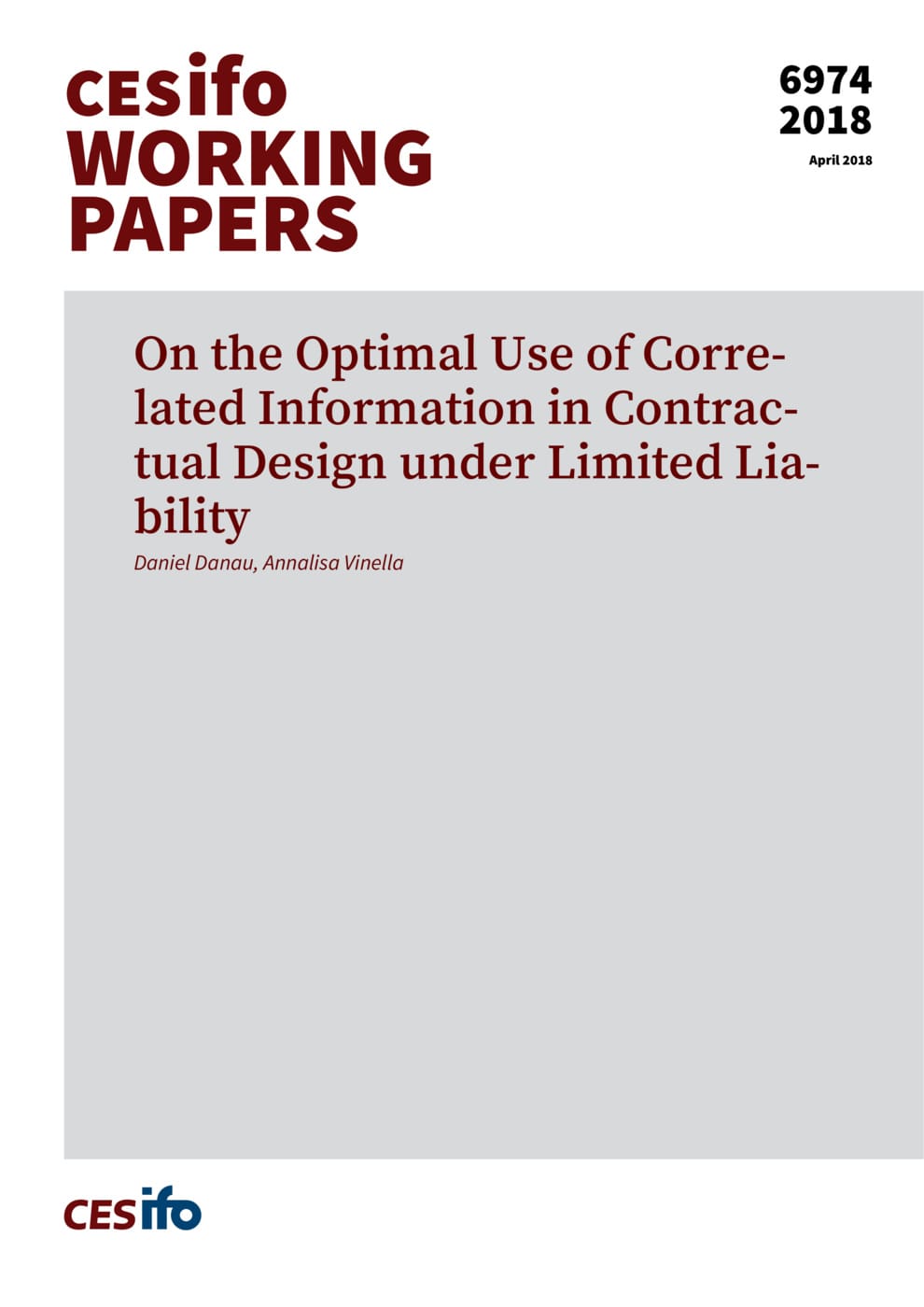On the Optimal Use of Correlated Information in Contractual Design under Limited Liability
CESifo, Munich, 2018
CESifo Working Paper No. 6974

Riordan and Sappington (JET, 1988) show that in an agency relationship in which the agent’s type is correlated with a public ex post signal, the principal may attain first best (full surplus extraction and efficient output levels) if the agent is faced with a lottery such that each type is rewarded for one signal realization and punished equally for all the others. Gary-Bobo and Spiegel (RAND, 2006) show that this kind of lottery is most likely to be locally incentive compatible when the agent is protected by limited liability. In this paper, we investigate how the principal should construct the lottery to attain not only local but also global incentive compatibility. We first assess that the main issue with global incentive compatibility rests with intermediate types being potentially attractive reports to both lower and higher types. We then show that a lottery including three levels of profit (rather than only two) is optimal in that it is most likely to be globally incentive compatible under limited liability, if local incentive constraints are strictly satisfied. We identify conditions under which first best is implemented. In a setting with three types and three signals we also pin down the optimal distortions when those conditions are violated. We show that, if local incentive compatibility is not an issue but first best is beyond reach, then it is generally optimal to concede an information rent to one type only.
Industrial Organisation
Empirical and Theoretical Methods